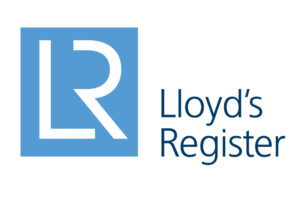 The U.S. National Transportation Safety Board have released the results of a report after the installation of an incorrect valve led to a fatal fire aboard a cargo vessel docked in LaPorte, Texas.
The U.S. National Transportation Safety Board have released the results of a report after the installation of an incorrect valve led to a fatal fire aboard a cargo vessel docked in LaPorte, Texas.
On January 8 2024, a fire broke out in the engine room aboard the cargo vessel Stride during bunkering, or fueling, operations while docked at the Barbours Cut Marine Terminal. The fire self-extinguished after crewmembers shut down all ventilation to the engine room. Two crewmembers died as a result of the fire, and one was seriously injured. Continue reading “NTSB investigation after incorrect valve led to a fatal fire”



 On November 27, 2024, approximately 100 nautical miles off the coast of Virginia, a bulk carrier shipping a type of coal called “Bailey High Vol Coking Coal” experienced consecutive explosions in the two forward cargo holds. While still under investigation, the explosions are likely a result of the accumulation of methane gas that created an explosive atmosphere and resulted in significant damage to the two associated cargo holds. It was soon discovered that the other five cargo holds also had highly elevated levels of methane that were
On November 27, 2024, approximately 100 nautical miles off the coast of Virginia, a bulk carrier shipping a type of coal called “Bailey High Vol Coking Coal” experienced consecutive explosions in the two forward cargo holds. While still under investigation, the explosions are likely a result of the accumulation of methane gas that created an explosive atmosphere and resulted in significant damage to the two associated cargo holds. It was soon discovered that the other five cargo holds also had highly elevated levels of methane that were  The Norwegian Maritime Authority has reported an increase in the number of commercial vessel incidents in the past year. A total of 1,154 incidents were registered on commercial vessels in 2024. Half of these were accidents and the other half were near misses. This represents an increase of about six percent in incidents compared to 2023, according to Vegar Berntsen, Section Manager, Risk Management and Analysis, Norwegian Maritime Directorate. According to Berntsen, smaller vessels are primarily the ones that sink, with the majority being fishing vessels.
The Norwegian Maritime Authority has reported an increase in the number of commercial vessel incidents in the past year. A total of 1,154 incidents were registered on commercial vessels in 2024. Half of these were accidents and the other half were near misses. This represents an increase of about six percent in incidents compared to 2023, according to Vegar Berntsen, Section Manager, Risk Management and Analysis, Norwegian Maritime Directorate. According to Berntsen, smaller vessels are primarily the ones that sink, with the majority being fishing vessels. Safety inspections of ships are a crucial and mandatory part of maritime operations, ensuring compliance with international regulations and safeguarding crew, cargo, vessels and the environment. Understanding how the process of safety inspections of ships is undertaken and maintaining readiness is essential to avoid deficiencies and ensure smooth operations. A well-prepared master plays a vital role in ensuring successful safety inspections. Masters should conduct regular self-inspections to identify and rectify potential deficiencies, maintain an updated checklist covering all inspection areas, and train crew members on emergency procedures and regulatory
Safety inspections of ships are a crucial and mandatory part of maritime operations, ensuring compliance with international regulations and safeguarding crew, cargo, vessels and the environment. Understanding how the process of safety inspections of ships is undertaken and maintaining readiness is essential to avoid deficiencies and ensure smooth operations. A well-prepared master plays a vital role in ensuring successful safety inspections. Masters should conduct regular self-inspections to identify and rectify potential deficiencies, maintain an updated checklist covering all inspection areas, and train crew members on emergency procedures and regulatory 



